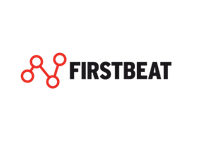The legacy of COVID-19: Creating positive change for working practices and benefits strategies

As we transition to a ‘new normal’, it is important we don’t fall into old habits. So, what is the work legacy of COVID-19, and what positive changes can your implement moving forward?
Open and honest communication
The COVID-19 pandemic meant business leaders had to take a more hands on approach to communicating. This increased internal communication – in the form of email, CEO vlogs or all-company zoom calls – was welcomed by staff at an uncertain time.
The opportunity is now there to make this open, honest and regular communication part of the norm – moving beyond crisis management to making everyone feel included in company-wide developments and making sure every employee feels heard. Transparent communication fosters an inclusive environment, can humanise previously distant senior figures, and reduce the ‘us vs them’ culture that can infiltrate workplace hierarchies.
This two-way process is especially important when we might all be a bit more spread out.
Flexible but functional
Pre-COVID, only one fifth of UK workers worked from home regularly. In the most intense point of lockdown, 44% of employed adults were home working, according to the Office for National Statistics. Some big tech companies may never ask employees to go into the office again. But then there are concerns over the impact home working is having on mental health.
It’s clear that there is no one-size-fits-all flexible working policy. The clue is in the name. Employers need to embrace a flexible attitude to flexible working to enjoy the benefits that can include increased employee satisfaction and productivity.
On the whole, flexible working has been championed by the workforce and there are few signs it is negatively impacting work. But that doesn’t mean implementing a blanket work from home policy just because it’s the hot new thing. Consult with staff, see where it may work, and where a different angle should be taken. The secret is finding the balance where employees feel empowered to work where they feel most productive, whilst still maintaining task focus and delivery.
Prioritising personalised wellbeing
Employee A may thrive working from home without the stress of the commute and rushing to pick up the kids from school.
Employee B may feel isolated in a one-bed apartment and stifled when it comes to collaborating with colleagues.
Understanding this (using the effective communication discussed earlier) and implementing work, wellbeing and benefits strategies that provide options for every employee, regardless of their circumstances, can help promote positive wellness.
This could come in the form of wellness apps or simply making sure line managers have the tools and support to have those important one-on-one conversations.
Tech revolution
It’s not quite the industrial revolution, but COVID-19 has meant the rapid take up of technology to help cope with a diverging workforce. And with the traditional 9-5 office working life possibly consigned to history, they are here to stay.
Making sure you have the right technology in place is critical and underlines the three topics listed above. Use this time of uncertainty to experiment with new technology to find that app, solution, or tool that will help your staff continue to collaborate, communicate and socialise even if they are no longer sharing the same four walls.
Key takeaways:
- Working from home isn’t a one-size-fits-all solution.
- Communicate, communicate, communicate.
- Embrace tech beyond video calls to help collaboration thrive.
- Don’t ignore individual wellbeing just because you can’t see every individual.
This article is provided by Firstbeat.
Supplied by REBA Associate Member, Firstbeat Technologies
Firstbeat is the leading provider of physiological analytics for well-being and sports.







